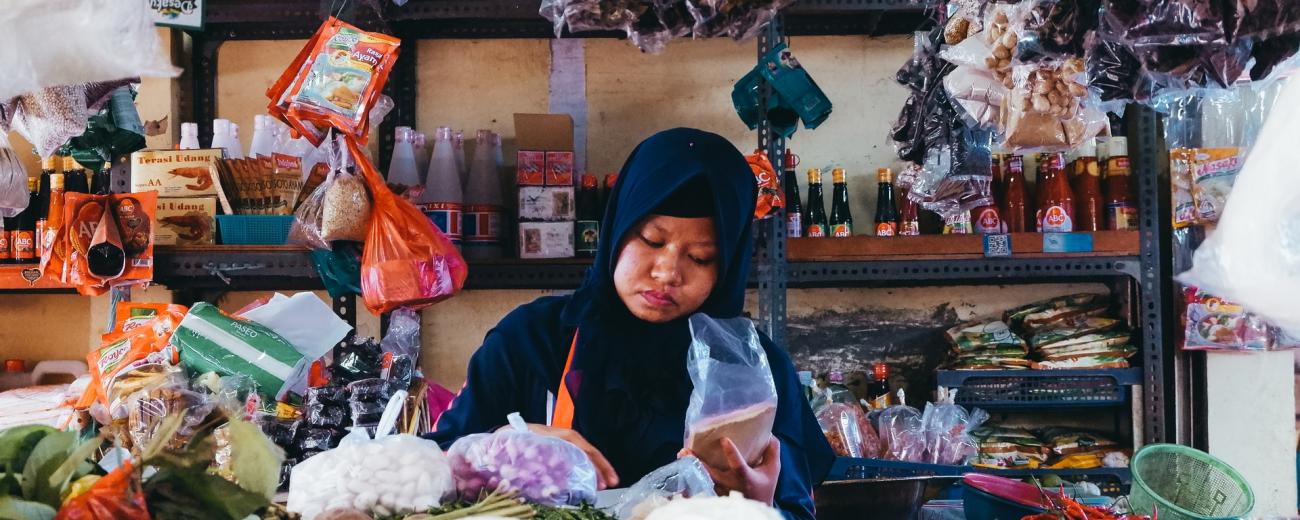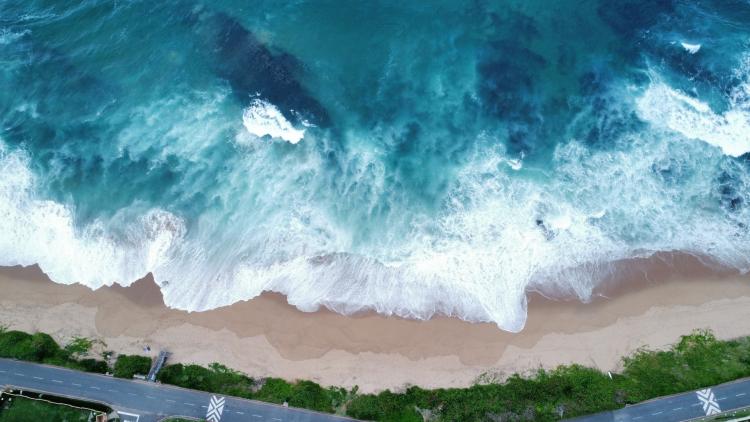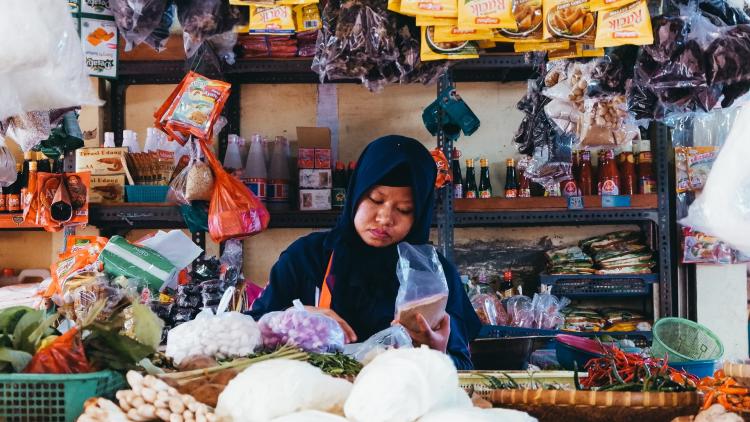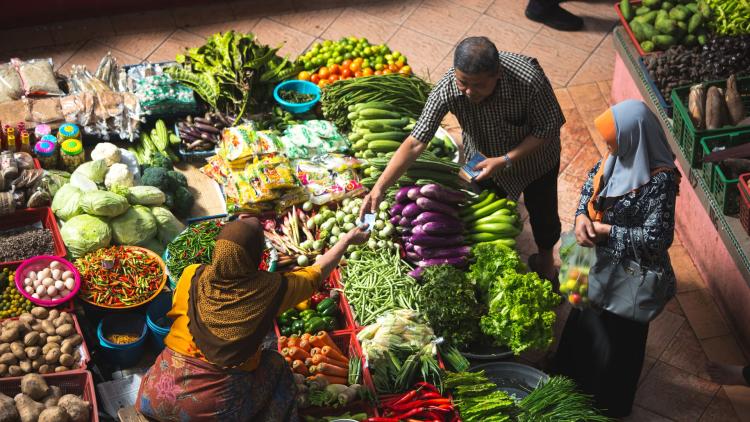BSc Development Economics


Key information
- Duration
- 3 years
- Start of programme
- September
- Attendance mode
- Full-time
- Location
- Russell Square, College Buildings
- Fees
-
Home student fees: £9,250
Overseas student fees: £21,990Please note that fees go up each year.
See undergraduate fees for further details. - Course code
- UGSF0056
- Entry requirements
-
AAB
Contextual: ABB
Applicants without A-level Maths (or equivalent) must have a minimum of grade B in GCSE Maths (or grade 6 in the new structure)
-
Austria: Reifeprufungszeugnis / Maturazeugnis: four subjects at 1, 1, 2, 2
A Level equivalent: AAB
Contextualised offer: ABB -
Belgium: Diploma van Secundair Onderwijs: 80% (8/10, 16/20) overall
A Level equivalent: AAB
Contextualised offer: ABBInformation for prospective students from Belgium
-
Bulgaria: Diploma za Zavarsheno Sredno Obrazovanie: 5.5 and 5.0 in two State Maturity Exams
A Level equivalent: AAB
Contextualised offer: ABB -
Canada: High School Diploma: 83% with 5 acceptable Grade 12 subjects (most territories).
British Colombia: AAABB in Grade 12 subjects.A Level equivalent: AAB
Contextualised offer: ABBInformation for prospective students from Canada
-
China: Senior Secondary Graduation Certificate + Gaokao: 80% overall in Gaokao PLUS 85% overall in Senior Secondary School Graduation Certificate (year 11 and 12)
A Level equivalent: AAB
Contextualised offer: ABBInformation for prospective students from China
-
Croatia: Matura Certificate: 5 overall with 5 in 2 Higher level subjects
A Level equivalent: AAB
Contextualised offer: ABB -
Cyprus: Apolytirion with 2 A-Levels: Apolytirion 18/20 + A-level grades AB
A Level equivalent: AAB
Contextualised offer: ABB -
Czech Republic: Matura Certificate: 1, 1, 2, 2
A Level equivalent: AAB
Contextualised offer: ABB -
Denmark: Studentereksamen; Hojere Forberedelseseksamen; Hojere Handelseksamen; Hojere Teknisk Eksamen: 10 plus 10, 10, 7 in three Level A subjects
A Level equivalent: AAB
Contextualised offer: ABBInformation for prospective students from Denmark
-
Estonia: Gümnaasiumi lõputunnistus with the Riigieksamitunnistus: 4.5 with 85%, 85%, and 80% in 3 state exams
A Level equivalent: AAB
Contextualised offer: ABB -
Finland: Ylioppilastukint / Studentexamen: four subjects at 6, 6, 6, 5
A Level equivalent: AAB
Contextualised offer: ABB -
France: French Baccalaureat or Option Internationale du Baccalauréat (OIB): 14/20
A Level equivalent: AAB
Contextualised offer: ABBInformation for prospective students from France
-
Germany: Abitur: 1.6
A Level equivalent: AAB
Contextualised offer: ABBInformation for prospective students from Germany
-
Greece: Apolytirion of Geniko Lykeio with Pan Hellenic exams: 18.5/20
A Level equivalent: AAB
Contextualised offer: ABBInformation for prospective students from Greece
-
Hong Kong: Hong Kong Diploma of Secondary Education: 554 in two electives and one core module (all other subjects grade 3)
A Level equivalent: AAB
Contextualised offer: ABBInformation for prospective students from Hong Kong
-
Hungary: Matura (Erettségi): 5 overall
A Level equivalent: AAB
Contextualised offer: ABB -
Iceland: Stúdentspróf: 8
A Level equivalent: AAB
Contextualised offer: ABB -
India: Standard XII: 80% (CBSE, CISCE, Tamil Nadu, Maharashtra & West Bengal boards), 85% (all other state boards)
A Level equivalent: AAB
Contextualised offer: ABBInformation for prospective students from India
-
Ireland: Irish Leaving Certificate: H1, H1, H2, H2, H3
A Level equivalent: AAB
Contextualised offer: ABB -
Israel: Bagrut: Overall grade of 8-10, 85% with 3 subjects at 5-unit level
A Level equivalent: AAB
Contextualised offer: ABBInformation for prospective students from Israel
-
Italy: Diploma Consequito con L’Esame di Stato: 85% overall
A Level equivalent: AAB
Contextualised offer: ABBInformation for prospective students from Italy
-
Latvia: Certificate of General Secondary Education: 88% in four State subject exams
A Level equivalent: AAB
Contextualised offer: ABB -
Lithuania: Brandos Atestatas: 9/10 and 90%, 90%, 85% in three State Exams
A Level equivalent: AAB
Contextualised offer: ABBInformation for prospective students from Lithuania
-
Malta: Advanced Matriculation Certificate: AA (Advanced) + BBB (Intermediate)
A Level equivalent: AAB
Contextualised offer: ABB -
Netherlands: Voorbereidend Wetenschappelijk Onderwijs: Overall 7.5 with 8, 8, 8, 7 in four subjects
A Level equivalent: AAB
Contextualised offer: ABB -
Norway: Vitnemål vidergaende opplaering: 4.7 overall
A Level equivalent: AAB
Contextualised offer: ABBInformation for prospective students from Norway
-
Poland: New Polish Matura: 80% in three Advanced Level subjects
A Level equivalent: AAB
Contextualised offer: ABBInformation for prospective students from Poland
-
Portugal: Diploma de Ensino Secundario: overall 18/20
A Level equivalent: AAB
Contextualised offer: ABB -
Romania: Diploma de Bacalaureat: 9 overall
A Level equivalent: AAB
Contextualised offer: ABBInformation for prospective students from Romania
-
Singapore: Polytechnic Diploma (Nanyang, Ngee Ann, Singapore, Temasek and Republic Polytechnic): GPA 3.5
A Level equivalent: AAB
Contextualised offer: ABBInformation for prospective students from Singapore
-
Slovakia: Maturitná skúška / Maturita / Vysvedčenie o maturitnej skúške: four subjects at 1, 1, 2, 2
A Level equivalent: AAB
Contextualised offer: ABB -
South Africa: National Senior Certificate: 77766
A Level equivalent: AAB
Contextualised offer: ABBInformation for prospective students from South Africa
-
Spain: Curso de Orientación Universitaria / Título de Bachillerato: 8
A Level equivalent: AAB
Contextualised offer: ABBInformation for prospective students from Spain
-
Sweden: Slutbetyg / Examensbevis från Gymnasieskolan: A in 1500 credits and no grades below D / 18.5 / mainly A overall (MVG/VG)
A Level equivalent: AAB
Contextualised offer: ABB -
Switzerland: Federal Maturity Certificate: 4.7
A Level equivalent: AAB
Contextualised offer: ABB -
Tanzania: Advanced Certificate of Secondary Education: ACSE with AAB in 3 principle subjects
A Level equivalent: AAB
Contextualised offer: ABB -
Trinidad and Tobago: CAPE: Six CAPE units with grade 2 (+two double-unit courses = grade 2)
A Level equivalent: AAB
Contextualised offer: ABB -
Turkey: Lise Diplomasi: 80-85% (depending on high school)
A Level equivalent: AAB
Contextualised offer: ABB -
USA: High School Diploma plus ACT, SAT, or AP exams:
- High School Diploma GPA 3.2 plus SAT 1300 or ACT 29 and 2 AP's at 5,4/ 3 AP's at 5,4,4
or - High School Diploma GPA of 3.4 plus 2 AP's at 5,4 or 3 AP's at 5,4,4
or - High School Diploma GPA of 3.5 plus SAT 1340 or ACT 30
or - 2-year Associate degree GPA 3.2
A Level equivalent: AAB
Contextualised offer: ABB - High School Diploma GPA 3.2 plus SAT 1300 or ACT 29 and 2 AP's at 5,4/ 3 AP's at 5,4,4
-
See undergraduate entry requirements and English language requirements for international and alternative entry requirements.
Course overview
Studying BSc Development Economics will provide you with a thorough grounding in economic theory, analysis and policy, while studying the economics of a wide range of developing and emerging countries.
The Department of Economics is one of the country's leading departments specialising in the economics of growth and development as well as in political economy and heterodox approaches to Economics. Research and teaching are pursued on a variety of topics and are unique in their depth and range of regional and specialising coverage, including topics from contemporary banking and finance, the economics of the environment, gender economics, global economic policy, as well as the economic development of a variety of regions from Japan to the Middle East.
Why study BSc Development Economics at SOAS?
- SOAS is ranked 27th in UK for economics (QS World University Rankings 2023)
- We are top 20 in the UK for student satisfaction with teaching (Complete University Guide 2023)
- We are top 40 in the UK for economics (Complete University Guide 2023)
Structure
Students take 120 credits composed of Core, Compulsory and Optional modules.
- Core modules: These are mandatory and must be passed in the year they are taken before the student can progress to the next year.
- Compulsory modules: These are mandatory but in the case of a failure, students may carry this into their next year provided that they retake and pass the failed element or exam.
- Optional modules: These are designed to help students design their own intellectual journey while maintaining a strong grasp of the fundamentals.
After the introductory modules in Year 1, you will then advance into more specialised modules in Years 2 and 3 that dive deeper into economic theory, specific regions in Asia, Africa and the Middle East, and specialised fields. In your final year you should take at least 30 credits from the Regional Development Optional Modules.
Important notice
The information on the website reflects the intended programme structure against the given academic session. The modules are indicative options of the content students can expect and are/have been previously taught as part of these programmes. However, this information is published a long time in advance of enrolment and module content and availability is subject to change.
Year 1 (for students with A-level or equivalent in Maths)
Core modules
| Module | Credits |
|---|---|
| Economic Principles (Macro) | 15 |
| Economic Principles (Micro) | 15 |
Compulsory modules
Guided option modules
In addition to the above cores & compulsories, students select one of the following.
The full list of guided options can be found near the end of this page.
- Year 1 guided option modules to the value of 45 credits
OR - Year 1 guided option modules to the value of 30 credits and a language open option module to the value of 15 credits
OR - Year 1 guided option modules to the value of 15 credits and a language open option module to the value of 30 credits
Year 2 (for students with A-level or equivalent in Maths)
Compulsory modules
| Module | Credits |
|---|---|
| Macroeconomic Analysis | 30 |
| Microeconomic Analysis | 30 |
| Development Economics | 15 |
| Employability and Career Planning Workshop | 0 |
Guided option modules
In addition to the above cores & compulsories, students select one of the following.
The full list of guided options can be found near the end of this page.
- Year 2 guided option modules to the value of 45 credits
- OR Year 2 guided option modules to the value of 30 credits and a language open option module to the value of 15 credits
- OR Year 2 guided option modules to the value of 15 credits and a language open option module to the value of 30 credits
Year 1 (for students without A-level or equivalent in Maths)
Core modules
| Module | Credits |
|---|---|
| Economic Principles (Macro) | 15 |
| Economic Principles (Micro) | 15 |
Compulsory modules
Guided option modules
In addition to the above cores & compulsories, students select one of the following.
The full list of Year 1 guided options can be found near the end of this page.
- Year 1 guided option modules to the value of 30 credits
- OR Year 1 guided option modules to the value of 15 credits and a language open option module to the value of 15 credits
- OR Language open option modules to the value of 30 credits
Year 2 (for students without A-level or equivalent in Maths)
Compulsory Modules
| Module | Credits |
|---|---|
| Macroeconomic Analysis | 30 |
| Microeconomic Analysis | 30 |
| Development Economics | 15 |
| Statistics | 15 |
| Employability and Career Planning Workshop | 0 |
Guided option modules
In addition to the above cores & compulsories, students select one of the following.
The full list of guided options can be found near the end of this page.
- Year 2 guided option modules to the value of 30 credits
- OR Year 2 guided option modules to the value of 15 credits and a language or non-language open option module to the value of 15 credits
- OR Year 2 language or non-language open option modules to the value of 30 credits
Guided option modules
In addition to the above, students select either:
- Modules to the value of 90 credits from the Year 3 guided option modules lists A, B and C below. Students must select a minimum of 30 credits from List B.
- OR Modules to the value of 60 credits from the Year 3 guided option modules lists A, B and C below (students must select a minimum of 30 credits from list B) and Language or non-language open option module(s) to the value of 30 credits.
Guided option module lists
Year 1 guided option modules
Year 2 guided option modules
| Module | Credits |
|---|---|
| Mathematics for Economists | 15 |
| Econometrics | 30 |
| International Trade and Investment | 15 |
| Banking and Finance | 15 |
| Global Financial Markets | 15 |
Year 3 guided option modules - list A
Year 3 guided option modules - list B
Year 3 guided option modules - list C
The below modules are Summer School modules which can be taken at the end of Year 2, and which count towards Year 3.
- 151040084 Climate Change and Sustainable Finance (15 credits)
- 153401011 Asia Pacific Business (15 credits)
- 1534401012 China's Belt and Road Initiative: Challenge and Opportunities (15 credits)
- 151010055 Economic Globalisation in Asia (15 credits)
- 153401017 Entrepreneurship in Asia (15 credits)
- 153401018 Global Mega Trends: Opportunities and Challenges in Asia (15 credits)
Teaching and learning
Our teaching and learning approach is designed to support and encourage students in their own process of self-learning, and to develop their own critical grounds of the economics discipline.
Contact hours
All full-time undergraduate programmes consist of 120 credits per year, in modules of 30 or 15 credits. They are taught over 10 or 20 weeks. The programme structure shows which modules are compulsory and which optional.
As a rough guide, 1 credit equals approximately 10 hours of work. Most of this will be independent study. It will also include class time, which may include lectures, seminars and other classes. Some subjects, such as learning a language, have more class time than others. In the Department of Economics, most undergraduate modules have a two-hour lecture every week. Some, but not all, also have a one-hour seminar or tutorial every week.
Modules
Teaching combines innovative use of audio-visual materials, practical exercises, group discussions and conventional lecturing. Modules are taught through a combination of lectures and tutorials, usually a two-hour lecture and an one-hour tutorial weekly. Tutorials are sessions in which students are expected to take lead in discussions and/or present reports or presentations or solve problem sets and applied exercises in quantitative modules. Assessment of most modules is through a combination of written examination and course works.
Learning resources
SOAS Library is one of the world's most important academic libraries for the study of Africa, Asia and the Middle East, attracting scholars from all over the world. The Library houses over 1.2 million volumes, together with significant archival holdings, special collections and a growing network of electronic resources.
Fees and funding
Fees for 2023/24 entrants per academic year
| Programme | Full- time | |
|---|---|---|
| Home students | Overseas students | |
| BA, BSc, LLB | £9,250 | £21,160 |
| BA/BSc Language year abroad | £1,385 | £10,580 |
Please note that fees go up each year.
See undergraduate fees for further details.
Employment
Economics graduates leave SOAS with a solid grounding in statistical skills and an ability to think laterally, take a global perspective, and employ critical reasoning.
Recent graduates have been hired by:
- Bain & Co
- Bank of America
- Cabinet Office
- Deloitte
- Ernst & Young
- HM Treasury
- KPMG
- NHS England
- Foreign and Commonwealth Office
- Department for Business, Energy and Industrial Strategy
- HSBC
- National Institute of Public Finance and Policy, New Delhi
- UK Civil Service
- United Nations High Commissioner for Refugees (UNHCR)
- University of Bayreuth
- HM Treasury
- Department for International Development
- PwC
- UNDP
- King’s Investment Fund
- Foreign and Commonwealth Office
- The World Bank
- EY
- British Chamber of Commerce
- Oxfam
- RBS
Find out about our Careers Service.










